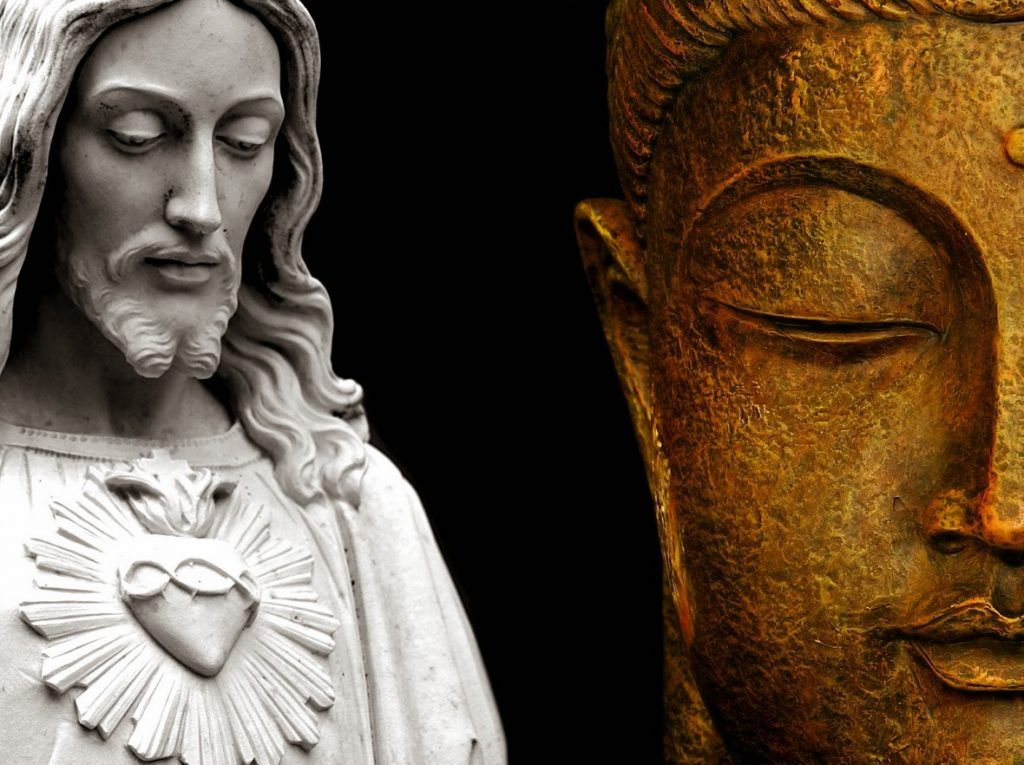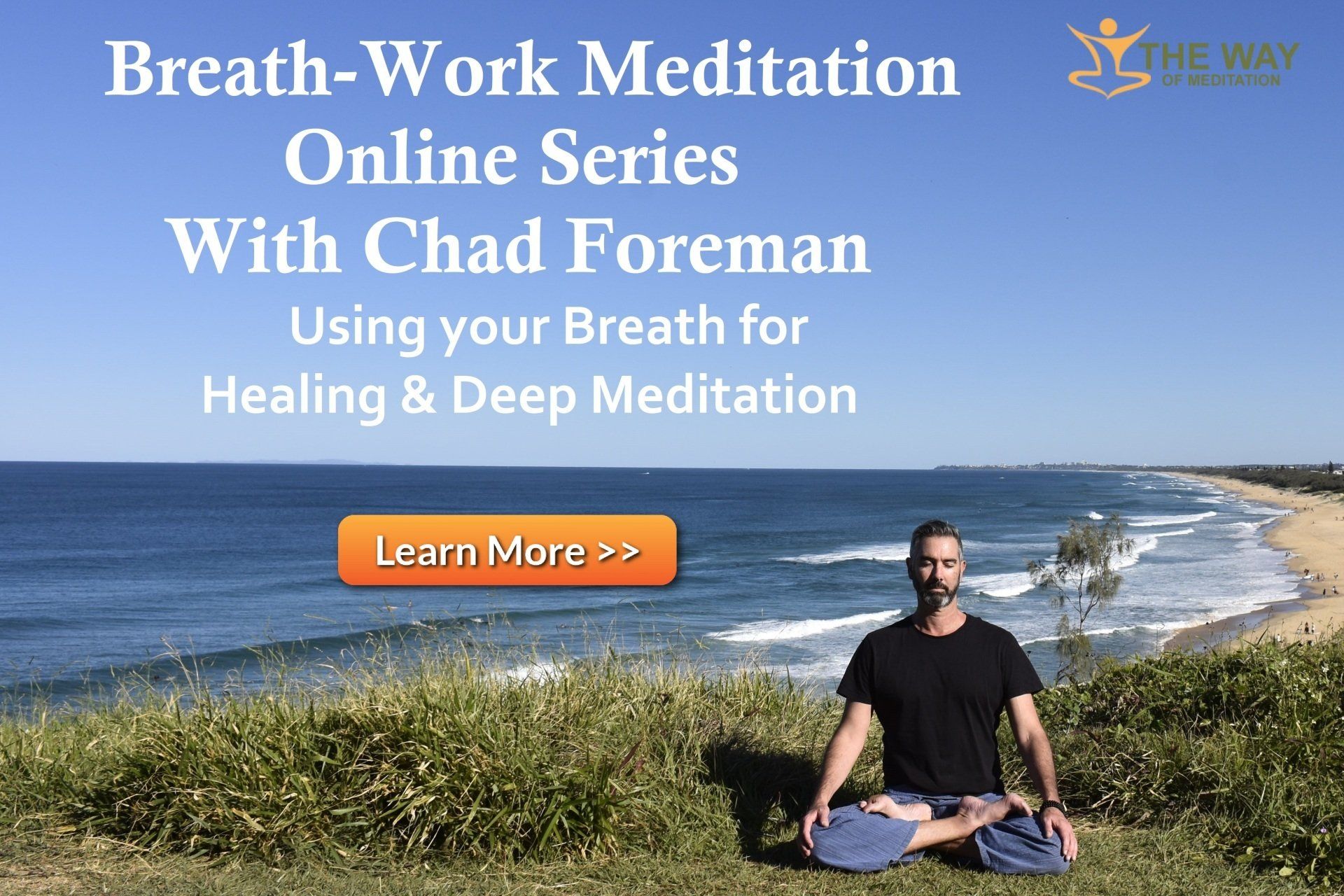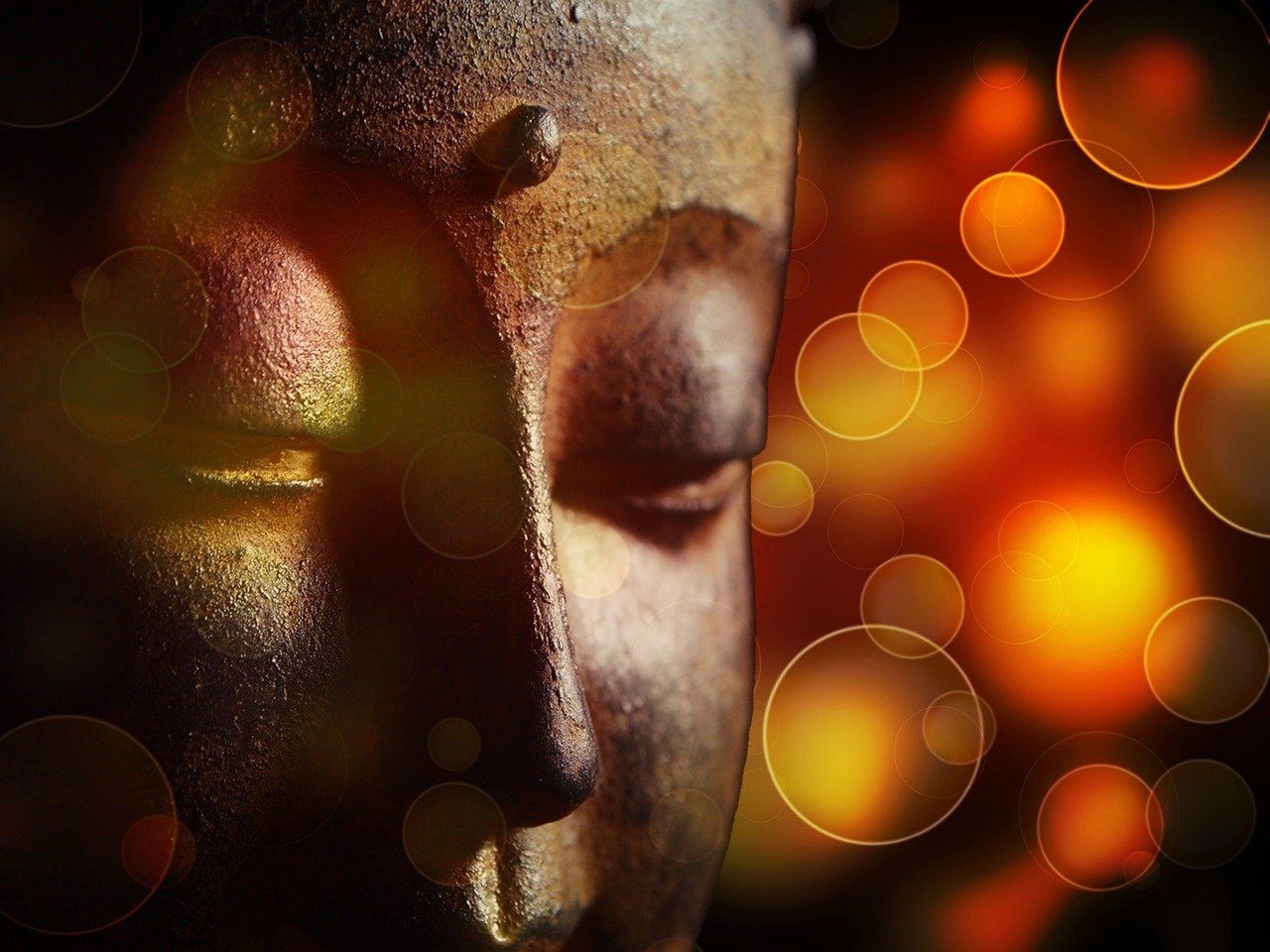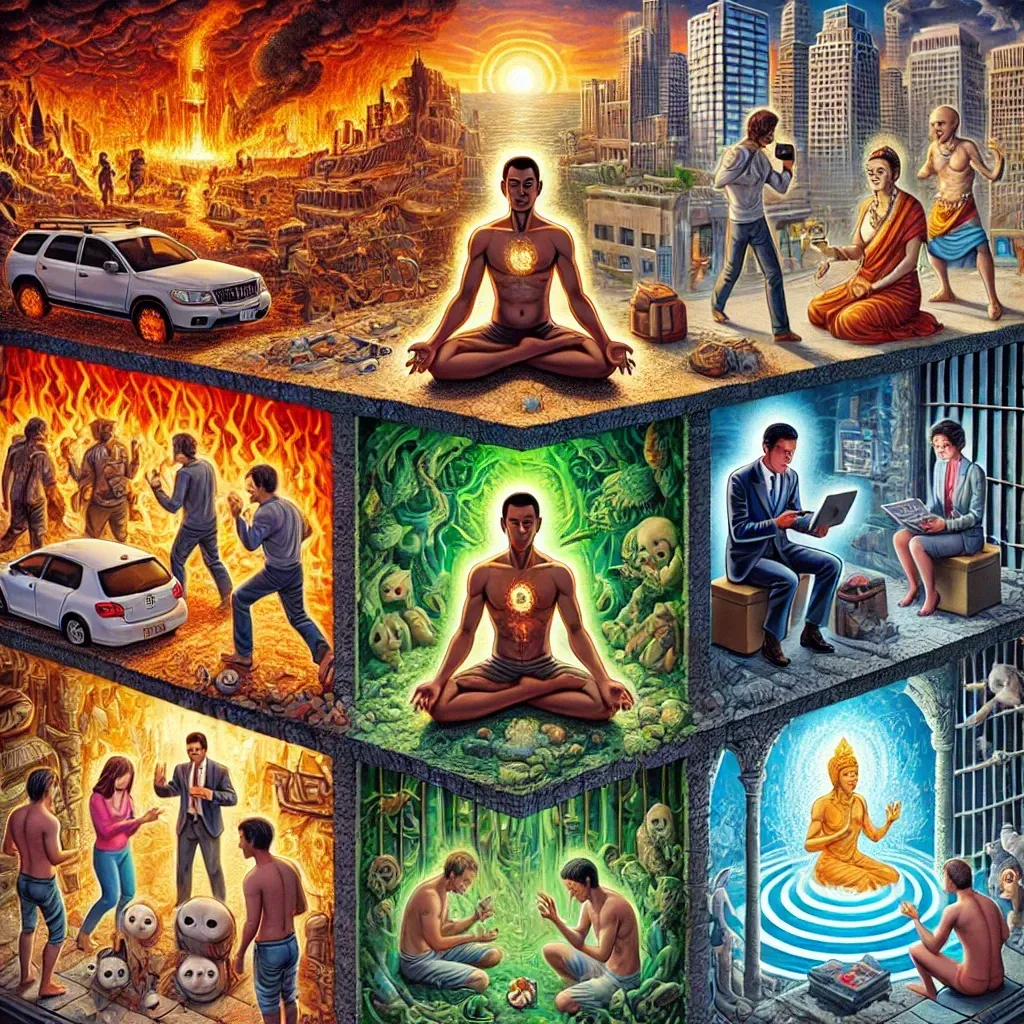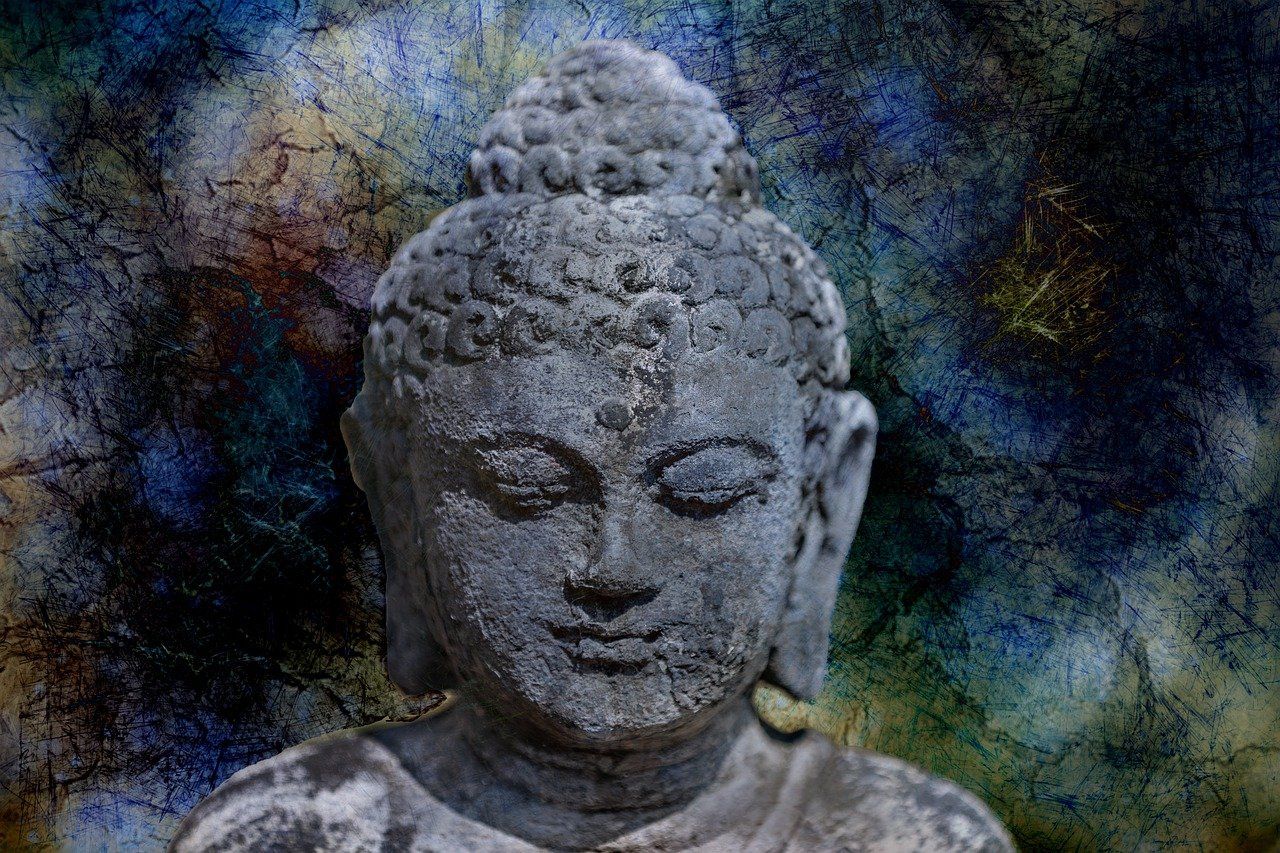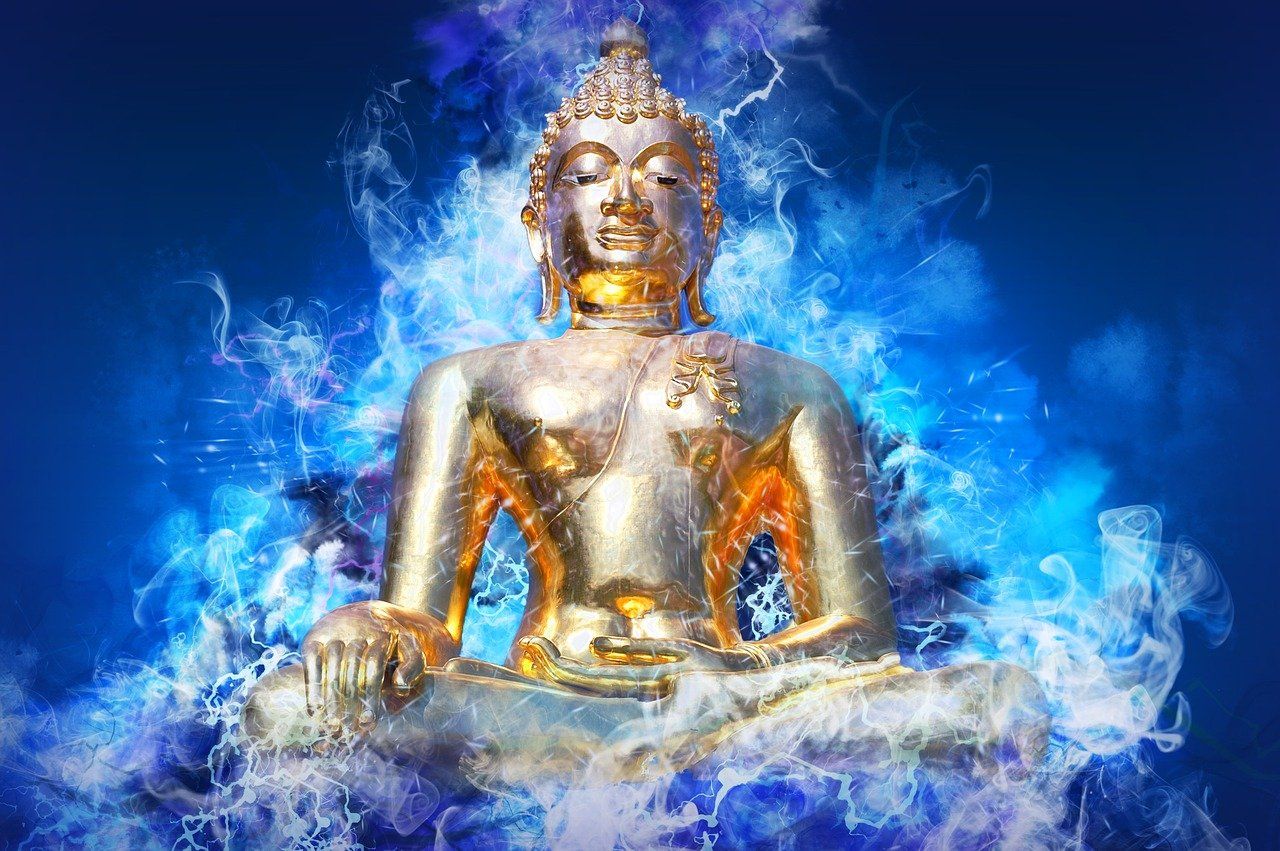The Way of Meditation Blog
Bringing Ancient Wisdom Into The Modern World
A Beautiful Christmas Message From A Buddhist Master
Lama Yeshe • December 18, 2016
[This is an extract from a talk given by a Tibetan Buddhist Master – Lama Yeshe to western students doing a Buddhist retreat around Christmas time]
This is the week of Holy Jesus’ birth, and I suggest that in honor of this special event we make some sort of celebration. But we should try to make it meaningful. It should not be some sort of physical sensation, bringing only more confusion and superstition to our minds. For a Christmas celebration to be a good one, it must be of a truly religious nature. Jesus came to this Earth and presented his teachings, but worldly beings completely disregard this fact. For them, Christmas means – first and foremost – spending money, buying presents, and creating confusion. Such confusion is entirely of our own making. We have the power to make Christmas meaningful, peaceful, and truly religious, but instead of using this power we succumb to worldly negative energy.
We go shopping to buy presents, but this is not done with anything even resembling a loving attitude. We think, “I really must buy something for my sister, because if I don’t give her anything, maybe she won’t like me anymore. Maybe she won’t give me anything either.” Or, “I better not get my friend a cheap present, or I might not get anything valuable back from him next year.” Such thoughts are extremely negative, leading to nothing but dissatisfaction. They are totally involved with egotistic and immature notions about what true happiness is. They have nothing whatsoever to do with religion.
This is the week of Holy Jesus’ birth, and I suggest that in honor of this special event we make some sort of celebration. But we should try to make it meaningful. It should not be some sort of physical sensation, bringing only more confusion and superstition to our minds. For a Christmas celebration to be a good one, it must be of a truly religious nature. Jesus came to this Earth and presented his teachings, but worldly beings completely disregard this fact. For them, Christmas means – first and foremost – spending money, buying presents, and creating confusion. Such confusion is entirely of our own making. We have the power to make Christmas meaningful, peaceful, and truly religious, but instead of using this power we succumb to worldly negative energy.
We go shopping to buy presents, but this is not done with anything even resembling a loving attitude. We think, “I really must buy something for my sister, because if I don’t give her anything, maybe she won’t like me anymore. Maybe she won’t give me anything either.” Or, “I better not get my friend a cheap present, or I might not get anything valuable back from him next year.” Such thoughts are extremely negative, leading to nothing but dissatisfaction. They are totally involved with egotistic and immature notions about what true happiness is. They have nothing whatsoever to do with religion.
True religion brings peace and satisfaction to the mind. Actions that arouse only confusion serve no religious function at all. They stem instead from a political mind that thinks, “If I give this, I’ll get that in return.” Such a mind is extremely immature. It delights when many presents are received, and is depressed when expectations go unfulfilled. What difference, then, is there between such a mind and that of a small child? We consider ourselves to be grown up, but our actions and attitudes show us to be little different from our children. They exaggerate the importance of receiving gifts, and so do we. In fact, their exaggerated expectation of their minds of confusion and dissatisfaction are mainly developed by watching us.
If we were to act in a consistently mature and meaningful way, our children would also become peaceful. We sometimes think that they are naturally berserk, and that we are something special but this is not so. Check up and see exactly what happens when a holiday approaches. We are the ones who create the commotion. The first thing that happens at the beginning of a holiday is that husband and wife, brother and sister and so forth begin to fight with one another. Be honest, and investigate the truth of this. I am not trying to be excessively negative; just check up and see if this is true or not. Holiday bickering has so much jealousy in it, “Let me see, what did you get? What did you get?” Such a dualistic mind is totally submerged in selfishness and wrong conceptions.
This deluded behavior is not common only to one type of culture. It can be found everywhere. Similarly, the antidote to this confusion is not taught merely in Buddhism. All religions strive to counter unsatisfactory, confused attitudes and bring us peace of mind.
If we were to act in a consistently mature and meaningful way, our children would also become peaceful. We sometimes think that they are naturally berserk, and that we are something special but this is not so. Check up and see exactly what happens when a holiday approaches. We are the ones who create the commotion. The first thing that happens at the beginning of a holiday is that husband and wife, brother and sister and so forth begin to fight with one another. Be honest, and investigate the truth of this. I am not trying to be excessively negative; just check up and see if this is true or not. Holiday bickering has so much jealousy in it, “Let me see, what did you get? What did you get?” Such a dualistic mind is totally submerged in selfishness and wrong conceptions.
This deluded behavior is not common only to one type of culture. It can be found everywhere. Similarly, the antidote to this confusion is not taught merely in Buddhism. All religions strive to counter unsatisfactory, confused attitudes and bring us peace of mind.
It is characteristic of materialistic people that they believe their happiness and frustration to be totally dependent on internal phenomena and possessions. If they do not receive enough ice cream and cake they are despondent: “I feel so empty. This Christmas has been such a flop I could die!” For them, the success or failure of a religious holiday depends entirely on material things. They cannot discover peace and happiness within their own consciousness, depending instead on some external, physical sign of “love.” It does not matter how much they might profess to be spiritual; their minds are completely obsessed by the gross, material level of reality.
The investigation of such matters is Dharma, the true religious pursuit. Dharma study does not mean something coming out of the sky from another world. It deals directly with such questions as our motivation, what we are thinking and feeling right now in the midst of our everyday life.
If we don’t not make an attempt to control the negative, confused mind, then there is no such thing as Christianity, there is no Buddhism, no Mahayana. There is nothing worthwhile! We must recognize the negative mind for what it is, and then slowly begin to find a solution for the pain it causes ourselves and others. In this way our mind can be brought to a state of everlastingly peaceful realization. If we do nothing to correct our motivation and distorted ways of thinking, then Christmas exists merely for the ego. Although supposedly making a celebration for Jesus, what we are actually doing is completely degenerate.
Therefore, if you want to come to this Christmas celebration and bring a present, the best present you can bring is a peaceful mind. If you can make such an offering with true love for one another, that is enough. There is no need for too much physical activity.
Many Westerners have come to the East to study with gurus and lamas after becoming dissatisfied with the religions they found in their native countries. There then arises the great danger that when they return to the West they will speak harshly of those religions. This is useless activity; it is extremely harmful to oneself. From a psychological point of view, such discrimination and angry criticisms are a sign of mental illness. Why? Because the source of all our problems is our own mental projections. In the entire Earth there is no such thing as self-existent, permanent “problem.” Therefore, since difficulties arise only because of the deluded way we view things, our emotional criticism of another religious tradition is completely misguided, and psychologically unsound. It is ego-maniacal to deny our own responsibilities, and place blame on a completely inappropriate object.
Furthermore, Buddha himself set, as one commitment upon receiving an empowerment to practice his most powerful tantric teachings, the vow not to disparage with hostility any philosophical or religious doctrine whatsoever.
He knew that receiving such special initiations and teachings could lead to arrogance, and established this precept specifically to counter it. For these reasons, then we should guard ourselves against all sectarian thought.
It is our habit to make constant comparisons between things. Our thoughts run to partisanship very readily. Whatever we identify as our own automatically becomes “the best,” and we feel it is our duty to fight with anyone who holds a contrary opinion. Our false feeling of superiority compels us to look down on anything we feel to be opposed to our beliefs. As a result, we often end up criticizing something, merely because we do not understand it. This is nothing but a sign of ignorance.
For example, in the Bible it says that God created everything. Many of us might rebel at such a statement, but perhaps it is only because we cannot grasp its psychological importance. Maybe it would be better for us if we could learn to interpret things less literally and be more flexible in our approach. In this way realizations would have a chance to grow. We should understand that Westerners have such a strong desire to be free and independent. “I want to take care of myself.” “I want to do my own thing.” “I, I, I, I, I.” Even if someone offers us help, we reject it: Such a selfish misinterpretation of freedom is the cause of so many problems that it would be extremely beneficial to correct it somehow. Therefore, the teachings that say that God created everything, including ourselves, can be a very effective antidote to our false pride. Our self-attachment lessens as respect for something greater than ourselves grows. This presents us with an alternative to respecting only ourselves, and taking refuge only in our own petty ego.
We here have great respect for Jesus, and since so many of my students are from the West, we have decided to hold this Christmas festival. But we must try to make it meaningful. From the time we were born up until now, how many festivals have we attended. How did we behave during them? How did they affect our minds? Check up. Because of materialistic concerns, troubles came, didn’t they? For instance, when shopping for food, presents and the like, we argued over the price: “How much did you say that was? That That’s much too much. Don’t try to cheat me!” In such ways Christmas has brought us nothing but confusion. This is not a criticism of Christmas; I have great respect for Lord Jesus. It is we ourselves who are confused and are therefore responsible for Christmas’ confusion.
Jesus brought teachings to show us how to be peaceful. Out of respect for him, his birth festival should also be peaceful. If it is not, this clearly shows that we have not understood what he taught at all. We may think that a proper show of respect, a true festival, depends on how much physical preparation we make. But only an advanced and controlled mind can deal with external materials without attachment. Ordinary minds quickly become involved in petty, selfish ego concerns.
Similarly, we think that the sign of a true religious teaching is that a large number of people profess to follow it. But it is not necessary for a true teaching to attract a large number of people. Again, it is just the materialistic, political, confused mind that thinks the highest truth must have a big congregation, great temples or churches, many monks and nuns, and so forth. No! These things in themselves are a sign of nothing. They do not determine the purity and quality of what a particular religion teaches. If such external criteria are used as guidelines, there will be no way to discover the treasure of everlasting peace existing within the mind, of all sentient beings.
Therefore, if you want to come to this Christmas celebration and bring a present, the best present you can bring is a peaceful mind. If you can make such an offering with true love for one another, that is enough. There is no need for too much physical activity.
Many Westerners have come to the East to study with gurus and lamas after becoming dissatisfied with the religions they found in their native countries. There then arises the great danger that when they return to the West they will speak harshly of those religions. This is useless activity; it is extremely harmful to oneself. From a psychological point of view, such discrimination and angry criticisms are a sign of mental illness. Why? Because the source of all our problems is our own mental projections. In the entire Earth there is no such thing as self-existent, permanent “problem.” Therefore, since difficulties arise only because of the deluded way we view things, our emotional criticism of another religious tradition is completely misguided, and psychologically unsound. It is ego-maniacal to deny our own responsibilities, and place blame on a completely inappropriate object.
Furthermore, Buddha himself set, as one commitment upon receiving an empowerment to practice his most powerful tantric teachings, the vow not to disparage with hostility any philosophical or religious doctrine whatsoever.
He knew that receiving such special initiations and teachings could lead to arrogance, and established this precept specifically to counter it. For these reasons, then we should guard ourselves against all sectarian thought.
It is our habit to make constant comparisons between things. Our thoughts run to partisanship very readily. Whatever we identify as our own automatically becomes “the best,” and we feel it is our duty to fight with anyone who holds a contrary opinion. Our false feeling of superiority compels us to look down on anything we feel to be opposed to our beliefs. As a result, we often end up criticizing something, merely because we do not understand it. This is nothing but a sign of ignorance.
For example, in the Bible it says that God created everything. Many of us might rebel at such a statement, but perhaps it is only because we cannot grasp its psychological importance. Maybe it would be better for us if we could learn to interpret things less literally and be more flexible in our approach. In this way realizations would have a chance to grow. We should understand that Westerners have such a strong desire to be free and independent. “I want to take care of myself.” “I want to do my own thing.” “I, I, I, I, I.” Even if someone offers us help, we reject it: Such a selfish misinterpretation of freedom is the cause of so many problems that it would be extremely beneficial to correct it somehow. Therefore, the teachings that say that God created everything, including ourselves, can be a very effective antidote to our false pride. Our self-attachment lessens as respect for something greater than ourselves grows. This presents us with an alternative to respecting only ourselves, and taking refuge only in our own petty ego.
We here have great respect for Jesus, and since so many of my students are from the West, we have decided to hold this Christmas festival. But we must try to make it meaningful. From the time we were born up until now, how many festivals have we attended. How did we behave during them? How did they affect our minds? Check up. Because of materialistic concerns, troubles came, didn’t they? For instance, when shopping for food, presents and the like, we argued over the price: “How much did you say that was? That That’s much too much. Don’t try to cheat me!” In such ways Christmas has brought us nothing but confusion. This is not a criticism of Christmas; I have great respect for Lord Jesus. It is we ourselves who are confused and are therefore responsible for Christmas’ confusion.
Jesus brought teachings to show us how to be peaceful. Out of respect for him, his birth festival should also be peaceful. If it is not, this clearly shows that we have not understood what he taught at all. We may think that a proper show of respect, a true festival, depends on how much physical preparation we make. But only an advanced and controlled mind can deal with external materials without attachment. Ordinary minds quickly become involved in petty, selfish ego concerns.
Similarly, we think that the sign of a true religious teaching is that a large number of people profess to follow it. But it is not necessary for a true teaching to attract a large number of people. Again, it is just the materialistic, political, confused mind that thinks the highest truth must have a big congregation, great temples or churches, many monks and nuns, and so forth. No! These things in themselves are a sign of nothing. They do not determine the purity and quality of what a particular religion teaches. If such external criteria are used as guidelines, there will be no way to discover the treasure of everlasting peace existing within the mind, of all sentient beings.
When Jesus was living on this Earth, there were no churches and such. His religion was not divided up into many groups and societies with people saying, “I’m a member of this sect; what denomination are you?” Things had not yet tightened up to the point where the religious follower felt compelled to choose one path or another. In this respect, at least, the people were much more liberated than we are today. Whatever they did in terms of their religion was done honestly and sincerely. Nowadays when you ask someone why he follows a particular religious tradition, he is likely to say, “Because my father did,” or “Because that church is near my house.” It is ridiculous to follow a particular set of teachings for these reasons. Others belong to a certain religion because it has the largest congregation in town. This also has nothing whatsoever to do with the true spirit journey.
One solitary being sincerely actualizing the everlasting peaceful path to liberation is more precious than a whole host of confused beings shouting. “This is my religion!” Such people may easily criticize the sincere seeker, despising him for holding beliefs contrary to those of the multitudes. Sheer numbers count for nothing in spiritual terms. It does not matter how many people are engaged in building a church, temple, or monastery; if they lack true religious feeling, their actions mean nothing.
I am not against religion. I like all religions. But our religion must be meaningful, and for this to happen we must transform ourselves inwardly. We do not become more religious by constructing more buildings, wearing beautifully adorned robes, or even by escaping into a mountain retreat. Without understanding, these actions are meaningless.
An individual’s religion is the wisdom he has integrated into his consciousness. It is this, and not the external trappings, that is the true mark of religion. Religious art, for instance, is not religion. An image of Jesus or Buddha is not religion. Religion is understanding. It is a completely internal matter.
Therefore, if our Christmas celebration is to be truly religious, it is important to remember who Jesus was, what he did and what he stood for. In this way we can understand how he benefited so many sentient beings and why he has been such a positive force, not merely in his own time, but throughout the last 2000 years, and up to the present day.
Jesus had exceptionally great compassion. It is very good to check up on this fact, and consider it deeply.
If the thought comes to our mind, “I must gain his realizations and become as compassionate as he was,” then this is the most perfect basis on which to have a celebration of his birth. With this feeling in our hearts, a Christmas festival can be very meaningful and worthwhile.
One solitary being sincerely actualizing the everlasting peaceful path to liberation is more precious than a whole host of confused beings shouting. “This is my religion!” Such people may easily criticize the sincere seeker, despising him for holding beliefs contrary to those of the multitudes. Sheer numbers count for nothing in spiritual terms. It does not matter how many people are engaged in building a church, temple, or monastery; if they lack true religious feeling, their actions mean nothing.
I am not against religion. I like all religions. But our religion must be meaningful, and for this to happen we must transform ourselves inwardly. We do not become more religious by constructing more buildings, wearing beautifully adorned robes, or even by escaping into a mountain retreat. Without understanding, these actions are meaningless.
An individual’s religion is the wisdom he has integrated into his consciousness. It is this, and not the external trappings, that is the true mark of religion. Religious art, for instance, is not religion. An image of Jesus or Buddha is not religion. Religion is understanding. It is a completely internal matter.
Therefore, if our Christmas celebration is to be truly religious, it is important to remember who Jesus was, what he did and what he stood for. In this way we can understand how he benefited so many sentient beings and why he has been such a positive force, not merely in his own time, but throughout the last 2000 years, and up to the present day.
Jesus had exceptionally great compassion. It is very good to check up on this fact, and consider it deeply.
If the thought comes to our mind, “I must gain his realizations and become as compassionate as he was,” then this is the most perfect basis on which to have a celebration of his birth. With this feeling in our hearts, a Christmas festival can be very meaningful and worthwhile.
Words by Lama Thubten Yeshe
Get A FREE
Guided Meditation Series
with Chad Foreman

In today’s fast-paced world, the mind often races, driven by the demands of work, family, and personal ambitions. Meditation is commonly seen as a practice to calm the mind, foster inner peace, and connect with deeper aspects of existence. Yet, one crucial element often overlooked is the state of the body, particularly the nervous system. Relaxing the nervous system isn’t just a preparatory step; it is foundational for unlocking the deeper states of awareness and tranquility that meditation promises. Drawing insights from my journey and teachings, we will explore why this is so vital and how it transforms the meditative experience.




